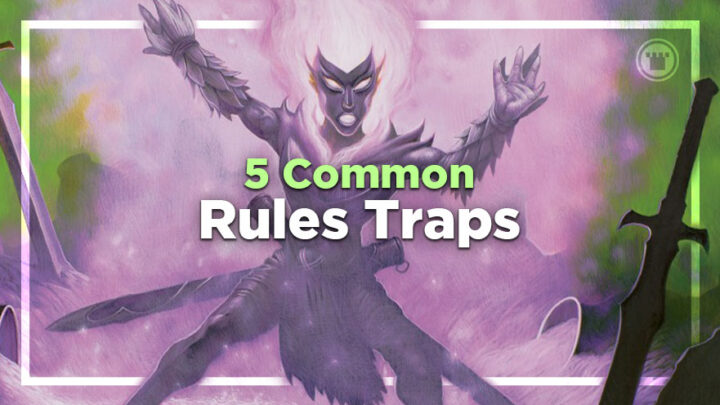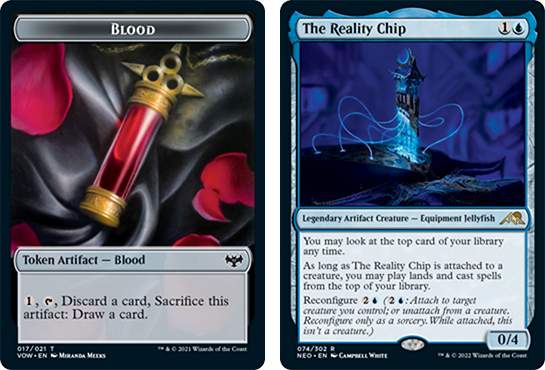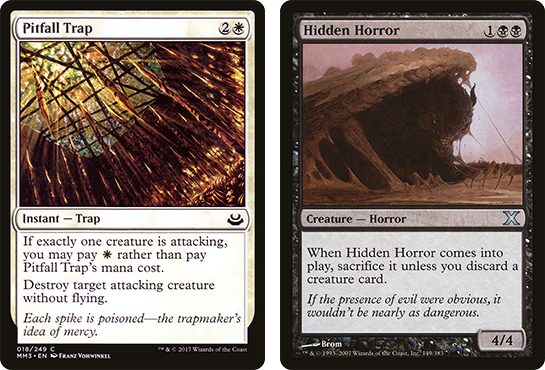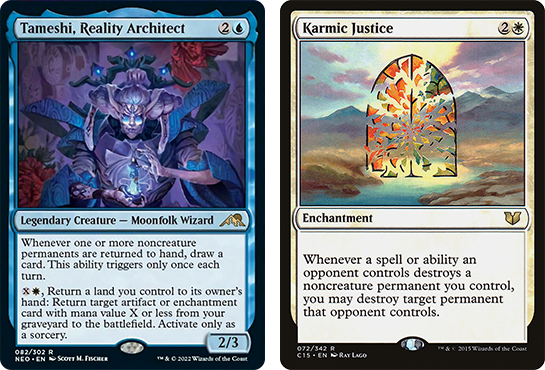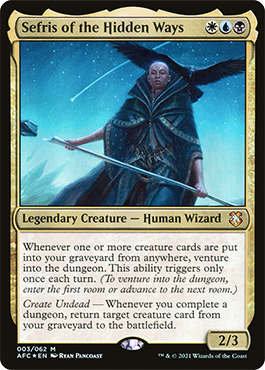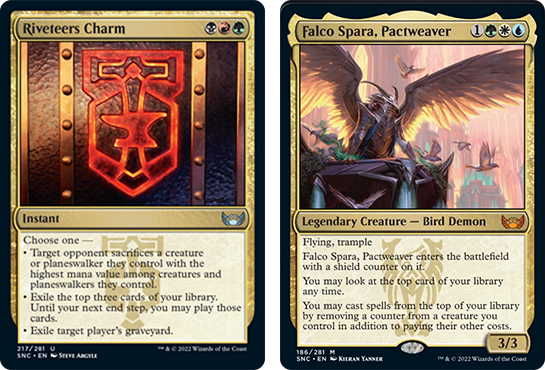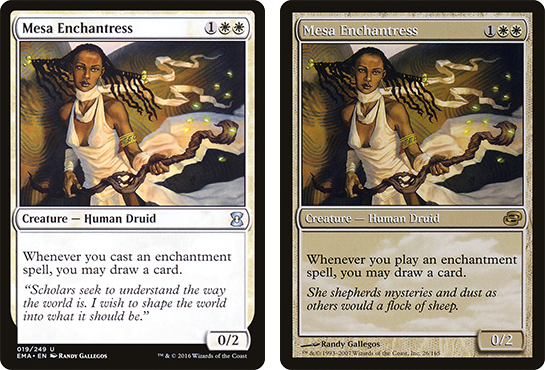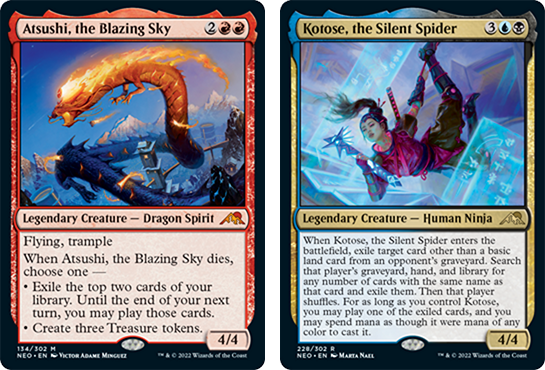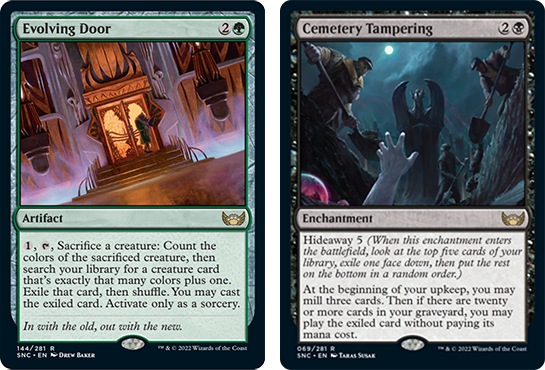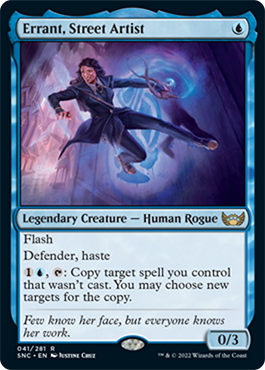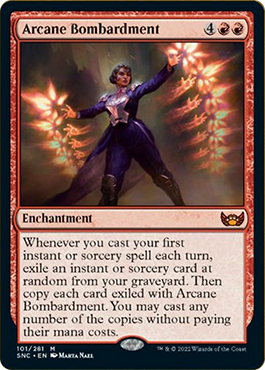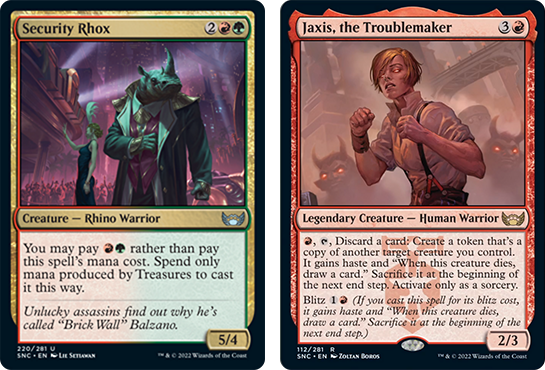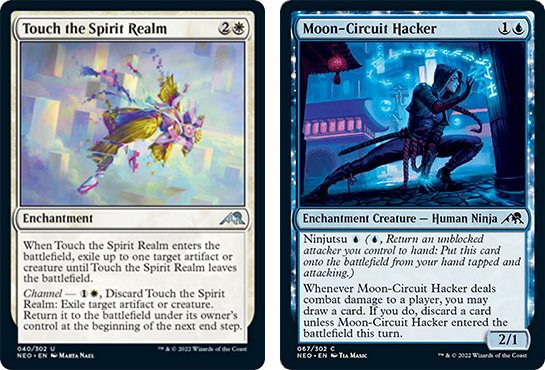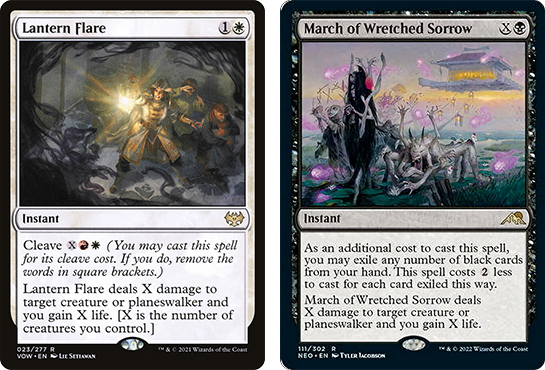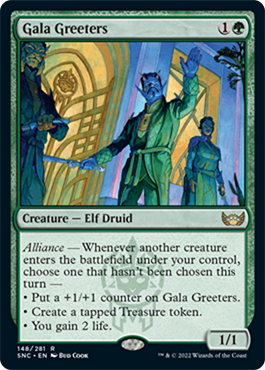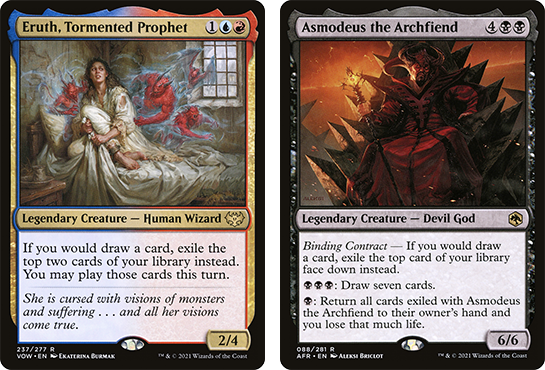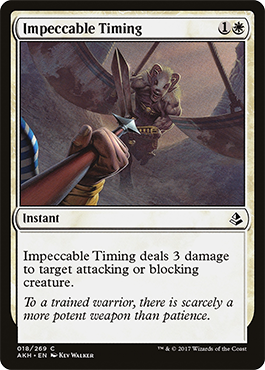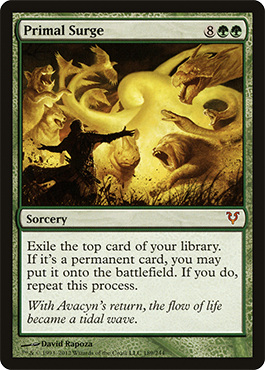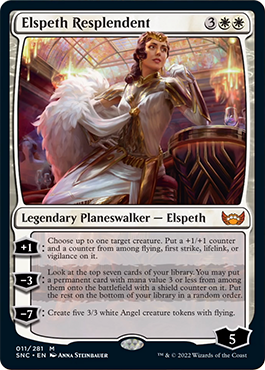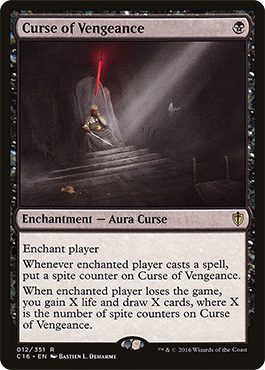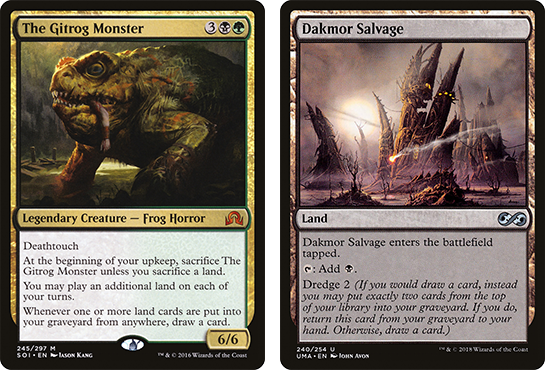Magic can be an extremely complex game. Tom takes a look at 5 of the most common rules pitfalls that players run into.
Magic’s last few sets have been praised for the dynamism of their card effects. Every few months the design team at WotC are pushing back the boundaries of the existing rules. We’ve gotten new keywords, new kinds of tokens, new card type combinations, and daring revamps of previous mechanics – and that’s just since October!
But this daring, exploratory design approach does have its costs. Magic often hides substantial complexity within ubiquitous game mechanics, and the ways different cards play with them is often hard to spot without specific knowledge. As we constantly remix and redefine common effects, these hidden rules pitfalls can come up more often – especially in a chaotic, all-inclusive melting pot of a format like Commander. Magic players love to learn and to be dazzled by unique spells, but it’s getting tough for even committed players to keep up!
So today I’ll try to touch on some of the subtle rules traps I see cause the most crestfallen “wait, really?” moments in games. Most players are probably comfortable with most of these, but it only takes one mistaken assumption to cause disaster!
TOKENS VS. CARDS VS. SPELLS VS. PERMANENTS
We’ll start with an easy one. Among the earliest pitfalls new players inevitably encounter in Magic is the difference between the intuitive idea of “a spell” and what the rules consider “a spell”. Despite confusing colloquialisms like “spells matter”, “spellslinger deck” and so on, cards are “spells” on the stack, “permanents” while in play, and just “cards” everywhere else. So far so good?
Tokens add a slight wrinkle into the mix, however. These are considered permanents like any other while in play, but they are never considered cards – they cease to exist when they leave the battlefield. But they stick around just long enough to require some precise wording on triggered abilities!
If a triggered ability looks for a permanent changing zones, such as Tameshi, Reality Architect, they still trigger for a token being returned, even if you never put that treasure into your hand. This includes triggers that look for when permanents “die” (which is simply shorthand for “is put into a graveyard from play”) or are “destroyed” (shorthand for “dies due to lethal damage, including deathtouch damage, or a destroy effect”).
But certain triggers are intentionally worded to exclude tokens, such as Soulcipher Board or Sefris of the Hidden Ways. Because they specify “creature cards”, tokens dying will not trigger them.
BUT WHEN, PRECISELY, MAY I CAST THIS?
One design space which has been getting a real workout in recent years is the bountiful delta between the terms “cast” and “play”. Whether it’s giving more colors an equivalent to card draw, expanding the available synergy for instants and sorceries, or offering powerful open-ended payoffs, effects which include the casting and playing of other cards are everywhere now. But while they may look similar, there is a ton of variation around what these effects actually do, and the differences are barely visible on the surface.
At its most basic level, the difference is that “cast” applies to spells only, while you can “play” spells and lands alike. Playing a spell includes casting it, so you won’t miss “when you cast” triggers. Just to be more annoying, WotC actually replaced the “cast” wording of these triggers with “play” for a decade or so – but their oracle text has now reverted to “cast” so they are consistent with other printings.
You know what’s not consistent? The precise timing and flexibility with which you’re able to cast a spell when instructed to by an ability! This is what really trips people up during preview season, so make sure you read these cards carefully. The important distinction is whether the effect gives you a specific time window or opportunity to play/cast your card.
Where a window of time or ongoing condition is specified, you must also play the card according to its usual timing restrictions – a foretold Battle Mammoth still has to be cast during your own main phase, for example, even if a foretold Behold the Multiverse doesn’t. However, if the effect simply states that “you may cast” with no specific timing, including as part of a triggered ability, then you are allowed to play/cast the card(s) in question even if the timing is “wrong”. Examples of this in Streets of New Capenna include the hideaway mechanic, or Evolving Door – which lets you potentially cast any creature at instant speed!
Playing a land always requires you to have a land drop remaining for turn, no matter what part of the turn you play it in. Just like token permanents, copied spells frequently add another layer of messiness. An effect which says “copy target spell” puts that copy directly onto the stack, so it was neither cast nor played – a technicality which could matter a lot for some errant spellslingers!
But just before you race to jam an Errant Commander deck together, you should know that some recent effects specify “you may cast the copy”, or similar wordings. In this case, the copies are in fact cast; they set off your cast triggers, but they make Errant deeply unhappy.
COUNTING THE COST
Still on the topic of casting spells here, but we’re gonna delve into a more specific and thorny aspect of the casting process – costs. One of the most popular kinds of card design are spells with variable costs, because having options is powerful and fun. Mechanics which affect the cost of other spells are also very popular, and often among the more powerful effects in the game. But all the different abilities and effects which impact “total cost” are implemented differently in the rules, and not always in the way you’d like…
The first kind of cost-related mechanic to consider are alternative costs. An alternative cost completely replaces the original casting cost of a spell for all other cost calculations.
Sometimes an alternative cost ability also changes the effect of the card, such as overload or the new blitz ability. Whenever an effect allows you to cast a spell “without paying its mana cost”, that’s also considered to be paying an alternative cost.
You should be careful to not confuse these alternative casting costs for abilities which are playable from hand, like channel or ninjutsu. Those are activated rather than cast, and put an ability – not a spell – on the stack. They also can’t be used from anywhere except your hand, even if you would be allowed to cast the card from there. On the other hand, split cards, MDFCs and adventure cards from Eldraine let you cast a whole other spell, rather than pay an alternative cost. Look for the “you may cast for” reminder text if in doubt.
Another common mechanic is the additional cost. Sometimes these are an optional bonus that upgrades the spell effect, like kicker, or Streets of New Capenna’s casualty mechanic. They can also simply be a way to force payments other than mana, such as sacrificing a creature to Village Rites. Cost-reducing and cost-increasing modifiers like Cemetery Prowler or Thalia, Guardian of Thraben are technically different to alternative costs, but follow virtually identical rules for when they do or don’t apply, so we can lump them in here too.
The important distinction between these mechanics is that you can only choose up to one alternative cost to pay when casting a given spell, but you can pay/apply many additional costs or cost modifiers as appropriate. So when you’re told to cast or play something without paying its cost, you cannot take advantage of any other alternative costs (and related modes) the card might have. But any additional costs and cost modifiers, be they optional or mandatory, still apply to whichever alternative cost you choose – and must be paid for normally regardless. So Vadrik, Astral Archmage still reduces the cost of instants cast with flashback, and playing a planeswalker from under Cemetery Tampering will still cost you 1 if the opponent has Thalia in play.
The final caveat here are spells with X in their printed mana cost. Unlike all the mechanics I just mentioned, these actually do change what mana value the spell has on the stack. This is important for effects like Obscura Ascendancy or Disdainful Stroke!
Because paying X is part of the normal casting cost, paying an alternative cost for these cards will result in X=0 – unless the alternative cost itself specifies a value for X, such as Lantern Flare or Disrupting Shoal. Additional costs can be paid, but will not affect the value of X unless they are also cost modifiers, such as the additional costs on the March cycle. Cost modifiers are applied after choosing a number for X, and thus will affect how high a value you can afford to pay.
Oh yeah – copying a spell on the stack copies EVERYTHING about that spell, including whether it was paid with any alternative or additional costs, and its specific value of X. You don’t need to pay for any of these costs again to receive their benefits.
REPLACEMENTS, TRIGGERS, AND ASSORTED STACKERY
Triggered abilities are an essential and exciting part of Magic, especially when applied in combination. Whether you’re building an infinite combo or just a healthy value engine, most Commander decks (and plenty of Constructed ones) revolve around triggers. So knowing just how and where these abilities overlap is vital.
Multiple triggers can be created from the same event – whether from the same source or different ones. The player controlling the abilities gets to choose the order in which the triggers resolve. If multiple players control simultaneous triggered abilities, the player whose turn it is add theirs to the stack first, then the rest of the players add their triggers in turn order.
But not everything which looks like a triggered ability is actually a triggered ability! Replacement effects usually feature the word “instead” after the “triggering” event. Some are worded similarly to “enters the battlefield” triggered abilities, but say a permanent “enters with” or “enters as”. The big difference between the two is that replacement effects don’t create a separate object on the stack, and thus they don’t need to wait until the event or effect they apply to has resolved before applying. Rather, they change the outcome of that event or effect as it happens.
Unlike triggers, you can’t apply multiple replacement effects to the same event – instead, the player being affected (or owner of the object being affected) chooses from among all possible replacements. However, if the modified action or event still meets the conditions for replacement by the other effects, that player must continue to apply them until none are eligible.
This allows, for instance, several damage-doubling replacement effects to stack multiplicatively, or for a friendly replacement effect to reduce incoming damage before the opposing replacement effect doubles it. It also means that some favorable replacement effects can be used to ignore negative ones – Blightsteel Colossus will never be exiled by Rest in Peace, for instance!
GETTING YOUR PRIORITIES RIGHT
One of the most fundamental and universal bits of Magic advice is to wait as long as possible before committing to an action. Playing at instant speed lets you both react to and pre-empt your opponent’s actions, creating easy two-for-ones in the process. But while the windows of action granted to players across a turn are very generous, they are not all-encompassing.
Most actions in Magic require you to have priority, which passes around the table in Active-Player-to-Non-Active-Player (APNAP) order each time the turn structure gives players a window to act, including after each individual spell or ability resolves from the stack. Priority is NOT passed or reset when effects are put ONTO the stack, and in fact a player can hold priority and keep slamming spells and abilities for as long as they like before giving someone else the chance. It’s the kind of thing which isn’t often relevant, but when it is it will usually be crucial to the result of a game – a painful pitfall indeed!
There are also several categories of events which don’t use the stack, and thus do not create a window for any player to react before their effect takes place. First of all, nobody gets priority in the middle of resolving an effect, for any reason. Once a spell or ability starts resolving, you keep going all the way to the end, and then figure out the fallout!
You don’t get to respond to turn-based actions – events which are inherent to the phases of play, like advancing sagas or cards phasing in. You also can’t respond to “special game actions” like playing a land, paying costs (including for effects like Rhystic Study or Leonin Arbiter), or flipping a morphed or manifested creature face up. Players still need priority to do these things, but they don’t use the stack.
Permanents entering the battlefield also do not by themselves create a priority window, unless them doing so triggers some other ability. This is why planeswalkers can reliably get some value even against instant removal; so long as you cast them during your own turn, you are the first player to get priority after a spell resolves, and can immediately use it to activate them.
CAN WE CLEAN THIS UP A LITTLE?
Knowing these windows of non-priority are even more crucial because they don’t just stop you playing spells and abilities; triggered abilities cannot be placed on the stack until the next player would gain priority, and even state-based actions (which circumvent the stack) will not take place until then. Literally nothing happens to interrupt these brief, special moments.
Of course, state-based actions themselves also create moments of non-priority. Nobody can respond to creatures dying to lethal damage or having their toughness reduced to zero, or from the effects of the Legend Rule. Nobody can respond to a player losing the game – including by concession – nor can you respond to all cards and effects owned by that player abruptly vanishing from the game!
The final no-priority windows to remember are simply the beginning and end of each turn. Nobody is allowed to gain priority during the untap step at all – even if untapping might trigger the ability of a card like Mesmeric Orb, those triggers aren’t put on the stack until the upkeep step. Among other things, this means you cannot act to fulfill the conditions of an upkeep trigger card like Liliana’s Contract and have it trigger on the same turn.
In theory, the cleanup step at the end of turn is also a no-priority zone. In practice, there’s a notable loophole – triggered abilities are allowed to be placed on the stack during cleanup, such as when you discard a land to hand size while controlling The Gitrog Monster. Of course this creates another round of priority for everyone to act, which means that afterwards you need to re-start the cleanup step to clean up the results of those actions. If that cleanup step leads to more triggers, the turn can be carried on perpetually – which of course is how the Gitrog + Dakmor Salvage combo works, replacing every draw trigger with dredging a land so you can keep discarding it to hand size!
IT’S OFFICIAL: MAGIC IS HARD
Are y’all still with me? I wouldn’t blame you if not – that was quite the journey, and of course we barely even scratched the surface of all the minutiae and rules quibbles that come when your game has over 20,000 unique cards interacting in untold combinations! Still, it’s a good exercise to test yourself from time to time – even the most assured veteran player can still be tripped up by the annual rules changes and revisions which inevitably touch parts of the game. Fully mastering the complete rules is its own serious undertaking apart, requiring intense and dedicated study.
And to be clear on that last note: I am not a qualified judge writing this article. In fact, I’ve never even attempted the test to become one. I’ve played the game for many years and I know a lot of cards and rules, but I by no means feel I’m infallible. So if I did get something wrong in this piece despite my best efforts and research – well, just take that as final proof that Magic is a game we’re all still learning!
Are you new to Magic and want more content teaching you about the game? Sign-up for our emails and we’ll make sure you’re in the know about new content!

Tom’s fate was sealed in 7th grade when his friend lent him a pile of commons to play Magic. He quickly picked up Boros and Orzhov decks in Ravnica block and has remained a staunch white magician ever since. A fan of all Constructed formats, he enjoys studying the history of the tournament meta. He specializes in midrange decks, especially Death & Taxes and Martyr Proc. One day, he swears he will win an MCQ with Evershrike. Ask him how at @AWanderingBard, or watch him stream Magic at twitch.tv/TheWanderingBard.

